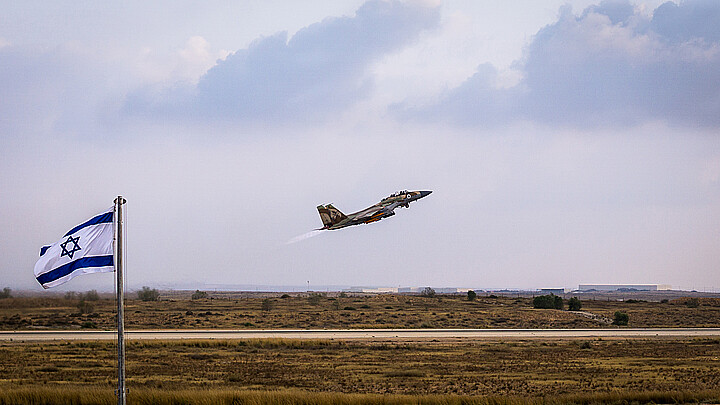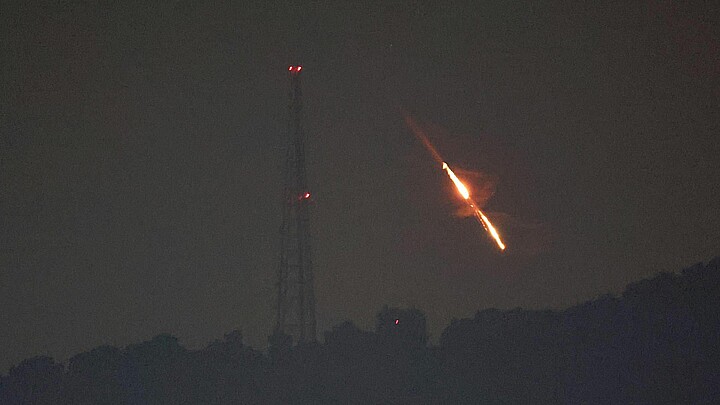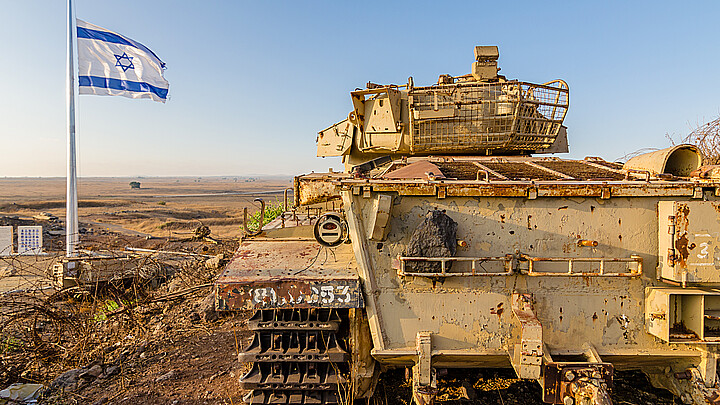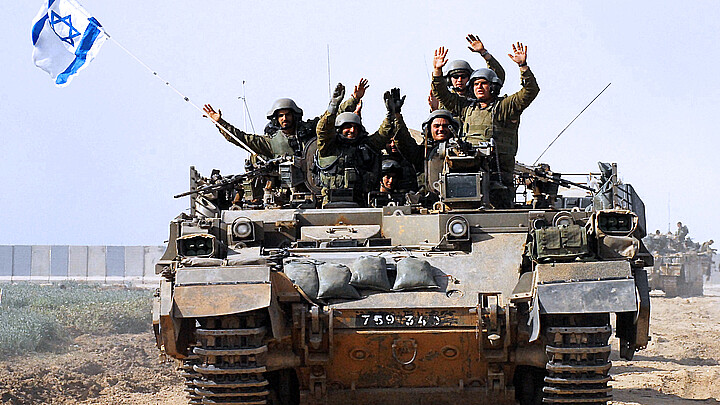Politics
Israel strikes back against Iran military targets
The strike is in response to Iran's Saturday attack when the Islamic Republic launched more than 300 unmanned drones and missiles toward the Promised Land

April 19, 2024 5:02am
Updated: April 19, 2024 12:51pm
Israel launched a retaliatory strike against Iran early Friday morning after explosions were heard near the airport at the central city of Isfahan, according to a senior U.S. officials who spoke to ABC News and three Iranian officials who spoke to The New York Times.
The strike is in response to Iran's Saturday attack when the Islamic Republic launched more than 300 unmanned drones and missiles toward the Promised Land.
Nearly all the Iranian missiles were intercepted by Israel’s Iron Dome defense interception system, and also its allies, including the United Kingdom and United States, officials said.
Tehran’s Saturday attack came six months after Hamas terrorists attacked Israel on Oct. 7, resulted in Israel Defense Forces crossing into the Gaza Strip to purge the area of enemy forces.
Iran's Islamic Revolutionary Guard Corps launched more than 120 ballistic missiles, more than 30 cruise missiles, and 170 unmanned aerial vehicles (UAVs in the attack, according to Israel Defense Forces spokesperson Daniel Hagari.
Hagari said "99% of the missiles launched towards Israeli territory were intercepted -- a very significant strategic achievement."
The IDF spokesman added that the Iranian attack resulted in one known casualty, a 7-year-old Arabic girl who was severely injured after being struck by shrapnel from an intercepted missile.
Since the recent strikes from Tehran, Israeli Prime Minister Benjamin Netanyahu has met with Tel Aviv’s war cabinet.
As a result of Friday morning’s strike on Iran, airports in the Islamic Republic were closed, and flights from the Persian Gulf were diverted to other locations.
Neither Israeli nor U.S. officials commented on the attacks at the time of this report, but on Thursday, the United States announced new sanctions against Iran's production of unmanned aerial vehicles.
Iran also warned Israel it would reevaluate its position on nuclear weapons if its atomic facilities were targeted by its military forces.
So far, there is no indication the recent Israeli strike targeted nuclear facilities, and Iranian state press has reported that Tehran’s atomic facilities were left unharmed.
In an appeal to the United Nations, the Islamic Republic told the Security Council Thursday that Israel, “must be compelled to stop any further military adventurism against our interests."
For its part, the international, intergovernmental organization’s secretary-general advised that the Middle East is in a "moment of maximum peril."
On Tuesday, International Crisis Group analyst Michael Wahid Hanna told USA TODAY the region faces a domino effect of conflict.
"The regional states remain quite concerned that the longer the open-ended conflict in Gaza goes on, the greater the possibility – through a direct decision or miscalculation – of a regional war," he told the nationwide newspaper.
Referring to the attack, Sen. Marco Rubio, a senior member of the Committee on Foreign Relations, said that Israel's response to Iran was understandable.
"Iran just launched the largest UAV drone attack in the history of the world, and they didn't do it symbolically; they did it to try to kill Israelis. They tried to kill people in Israel. And so this is the Israeli response to it, and it's appropriate. The United States needs to make it very clear whose side of this conflict we're on. We're not on the destabilizing Iranian regime side. We're on Israel's side."
My thoughts on Israel’s response to Iran 👇 pic.twitter.com/wl8ZLUClyK
— Senator Marco Rubio (@SenMarcoRubio) April 19, 2024
After Israel’s airstrikes, the U.S. Embassy there issued a security alert saying that U.S. government employees and their family members were restricted from personal travel outside Be’er Sheva, Jerusalem, and Tel Aviv.
“In response to security incidents and without advance notice, the U.S. Embassy may further restrict or prohibit U.S. government employees and their family members from traveling to certain areas of Israel (including the Old City of Jerusalem) and the West Bank,” the alert added.
The notice added that in the event of a “red alert” siren, all U.S. staff and their families should seek immediate shelter and to monitor the Israel Defense Forces Home Front Command website.










